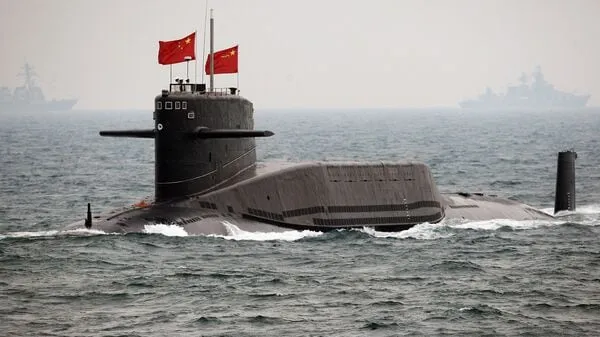The sinking of China’s newest nuclear-powered attack submarine marks a significant blow to Beijing’s maritime aspirations. China has been rapidly building a formidable navy, aiming to project power across the Indo-Pacific. But this recent incident exposes operational vulnerabilities and highlights the challenges China faces in modernizing its military.
Earlier this week, satellite images revealed the submarine had sunk alongside a pier while still under construction, according to reports from the Associated Press and the Wall Street Journal. U.S. defense officials confirmed the sinking but noted it was unclear whether the submarine was carrying nuclear fuel at the time. The submarine, the first of its Zhou-class, was seen as a pivotal asset in China’s growing navy, which is now the largest in the world.
Ziding Zhou, an independent analyst tracking CCP military developments, told the Epoch Times that the vessel’s relatively small size suggests it was intended for regional operations, particularly in the Taiwan Strait. Its loss underscores the technical challenges China faces as it experiments with smaller-scale nuclear technology for tactical, rather than strategic, missions.
Beijing has not publicly acknowledged the incident, a pattern consistent with its approach to military setbacks. But the revelation by U.S. officials sends a strong signal that China’s attempts to maintain secrecy over its military advancements are faltering. The sinking not only dents China’s prestige but may slow its naval build-up, a core element of Xi Jinping’s strategy to challenge U.S. dominance in the Pacific and secure contested territories like the South China Sea.
Nuclear-powered submarines are central to China’s naval ambitions, providing stealth and extended range capabilities. The sinking of this vessel raises questions about the reliability of China’s cutting-edge military technology and the speed of its naval modernization efforts. Replacing such a submarine is no simple task, and delays could force the CCP to rethink its broader strategy.
The geopolitical stakes are high. China’s aggressive naval expansion has already alarmed regional powers such as Japan, India, and Australia, along with the United States. The loss of the submarine may embolden these countries to further counter China’s military assertiveness, shifting the balance of power in the Indo-Pacific.
Domestically, the CCP faces pressure to manage this setback without appearing weak. Xi Jinping has closely tied his leadership to China’s military strength, and any failure could provoke internal criticism. Experts note that the incident not only weakens China’s immediate naval capabilities but also casts doubt on its long-term military reliability at a time when tensions in the region are at a high. Agencies.
etruth.mv

